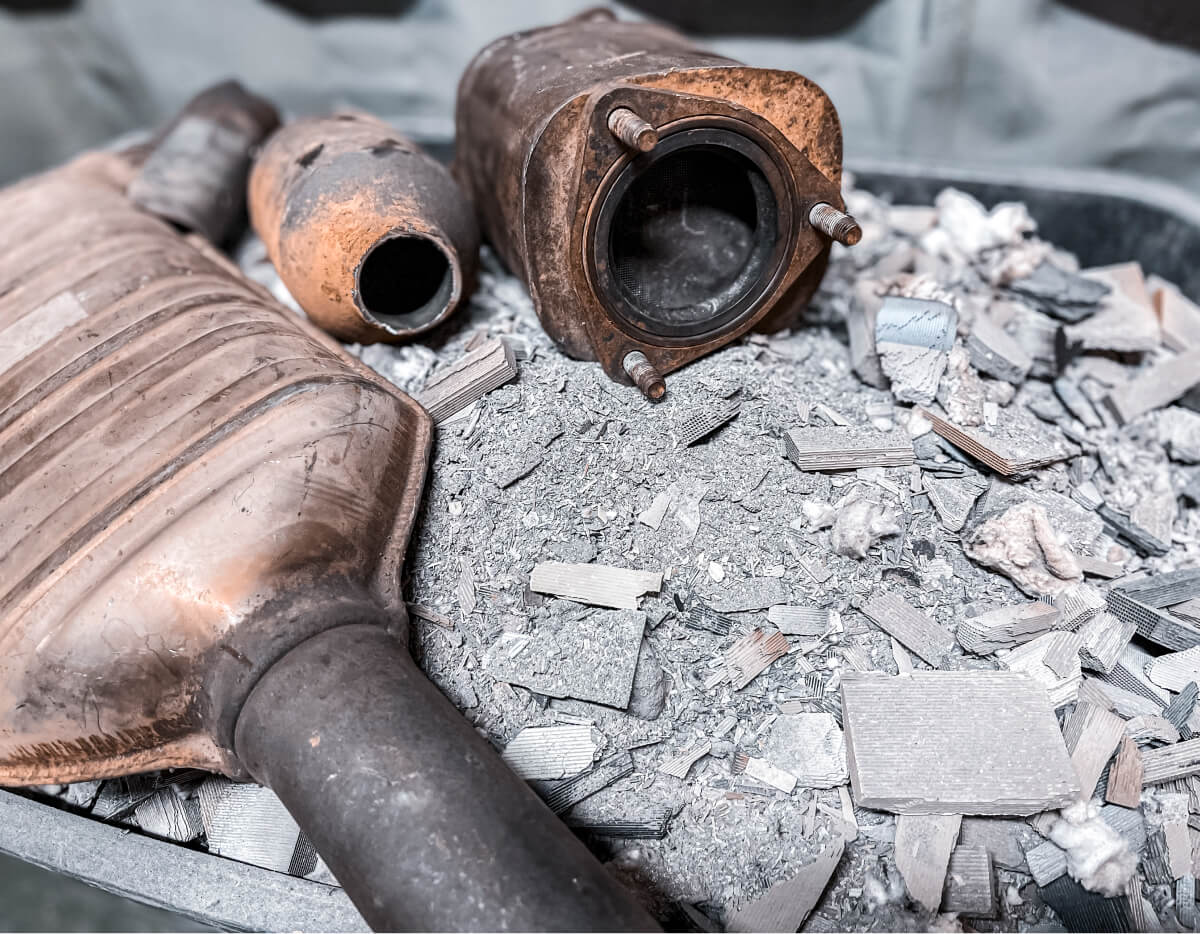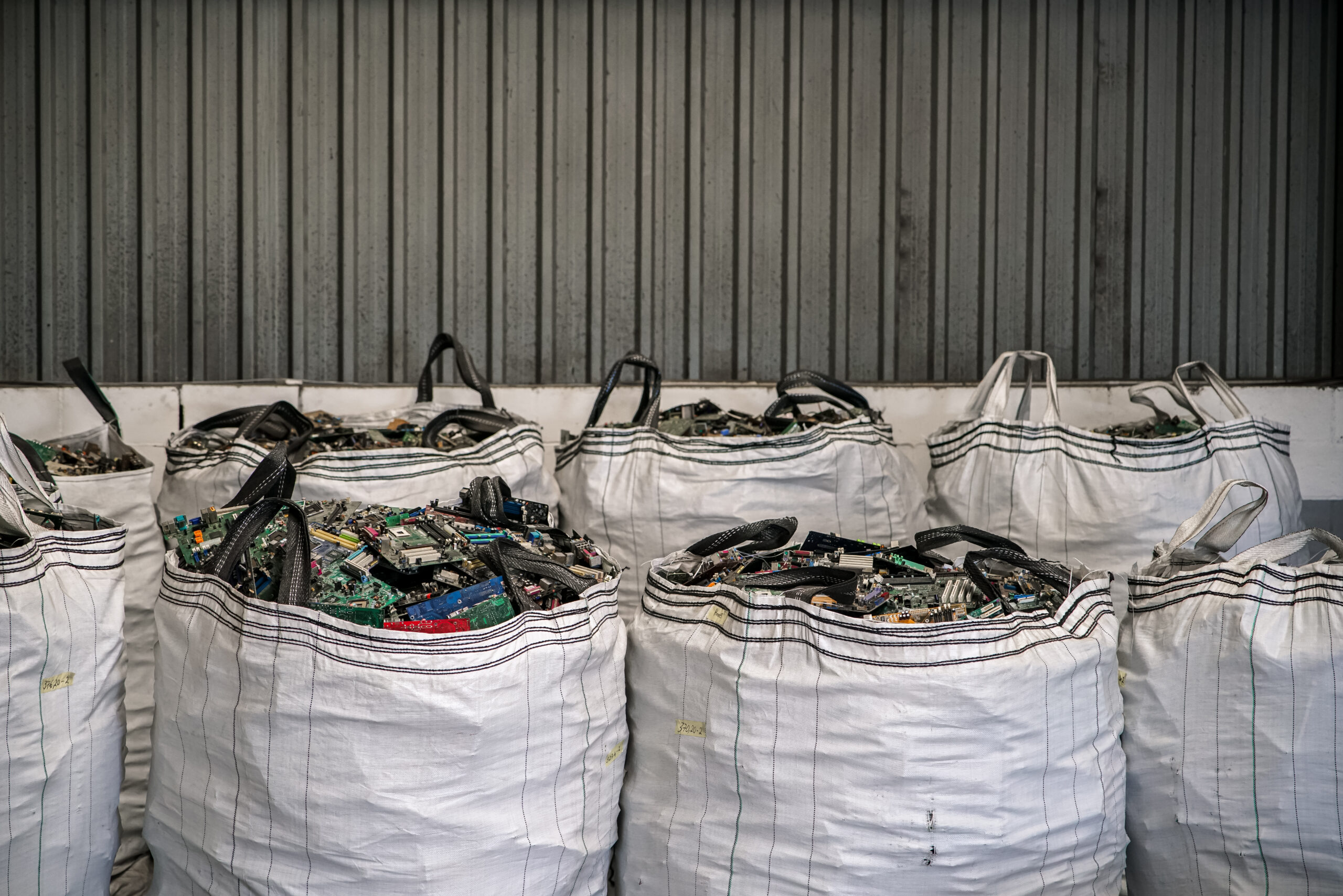Catalytic converters are integral components of modern vehicles, playing a vital role in reducing harmful emissions and environmental pollution. These devices are essential for promoting cleaner air quality and reducing the adverse effects of exhaust gases. While their primary function is to mitigate the emission of harmful pollutants, it is equally crucial to recognize the significance of recycling catalytic converters to maximize resource utilization and minimize environmental impact.
Function of Catalytic Converters
Catalytic converters are sophisticated emissions control devices installed in the exhaust systems of automobiles and other internal combustion engines. They contain catalysts, which are typically made from precious metals like platinum, palladium, and rhodium. These metals facilitate chemical reactions that convert harmful exhaust gases into less harmful compounds before they are released into the atmosphere.
The Three-Way Conversion Process
Catalytic converters primarily operate through a three-way conversion process:
- Oxidation of Carbon Monoxide (CO): Carbon monoxide is a poisonous gas produced by incomplete combustion. Inside the catalytic converter, the catalyst facilitates the oxidation of carbon monoxide into carbon dioxide (CO2), a less harmful gas.
- Reduction of Nitrogen Oxides (NOx): Nitrogen oxides are responsible for smog formation and contribute to air pollution. The catalyst within the converter reduces nitrogen oxides into nitrogen (N2) and oxygen (O2), which are harmless components of the atmosphere.
- Conversion of Hydrocarbons (HC): Unburned hydrocarbons are another group of pollutants found in vehicle emissions. The catalytic converter helps convert these hydrocarbons into carbon dioxide (CO2) and water (H2O), both of which are less harmful.
Importance of Catalytic Converters
Catalytic converters play a crucial role in maintaining air quality and reducing the negative impact of vehicular emissions on human health and the environment. Without effective catalytic converters, the levels of harmful pollutants, such as carbon monoxide, nitrogen oxides, and hydrocarbons, would be significantly higher, contributing to smog, respiratory issues, and global environmental challenges.
Catalytic converter pricing
Catalytic converter price can vary significantly due to a range of factors, including the type of vehicle, the specific make and model, the region or country, and the prevailing market conditions. One of the key determinants of catalytic converter prices is the presence of precious metals such as platinum, palladium, and rhodium within the device. The market prices of these metals can fluctuate due to factors like supply and demand dynamics, geopolitical events, and advancements in emission control technology. Additionally, the complexity of the converter’s design, its compatibility with different engine types, and the emissions regulations it meets also contribute to its cost. As awareness of environmental concerns and emissions regulations continues to grow, catalytic converters play a pivotal role in vehicle functionality, which in turn impacts their pricing within the automotive market.
Catalytic Converter Pricing by Codes in South Africa
When considering the catalytic converter price list in South Africa, it’s important to understand that prices can vary based on the catalytic converter codes and the specific make and model of the vehicle. Each converter is marked with a unique code that corresponds to its composition and the amount of valuable metals it contains, which directly affects its value in the market. The catalytic converter codes and prices in South Africa can fluctuate due to changes in the global prices of platinum, palladium, and rhodium. Additionally, regional factors such as local demand, environmental regulations, and the scrap market influence the catalytic converter scrap price. For accurate pricing and to determine the best value for your used catalytic converter, South Group Recycling offers reliable assessments based on current market conditions and ensures environmentally responsible recycling practices.
The Need for Recycling
Recycling catalytic converters is not only a matter of environmental responsibility but also an economic opportunity due to the valuable metals they contain. Precious metals like platinum, palladium, and rhodium are finite resources, and their extraction through mining is environmentally disruptive. Recycling these metals from used catalytic converters helps:
- Conservation of Resources: Recycling reduces the need for new mining activities, preserving natural resources and habitats.
- Energy Conservation: Extracting metals from ores requires substantial energy consumption. Recycling these metals from converters significantly reduces energy requirements.
- Reduction of Pollution: Mining processes generate pollution and habitat destruction. By recycling, we decrease the negative impact on the environment.
- Economic Benefits: Recycling catalytic converters contributes to a more sustainable supply of precious metals and helps stabilize their market prices.
Conclusion
Catalytic converters are indispensable for reducing vehicular emissions and their associated environmental impacts. Their proper functioning contributes to cleaner air quality and improved public health. Catalytic converter recycling goes hand in hand with their importance, ensuring the responsible use of precious metals and the reduction of environmental harm. Embracing recycling practices not only conserves resources and energy but also sets the stage for a more sustainable and ecologically balanced future.
If you are looking for catalytic converter buyers near you, check the contacts section. For over a decade, South Group Recycling has been one of the few certified responsible and environmentally friendly recyclers in the African region. You can find South Group recycling in Johannesburg, Cape Town, Durban, and Pretoria.




